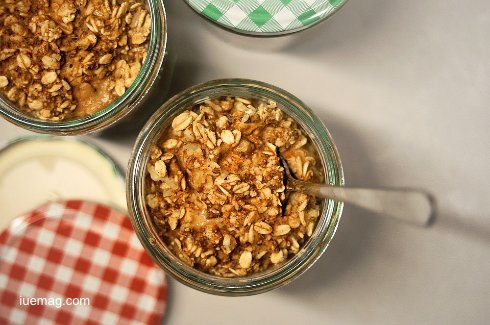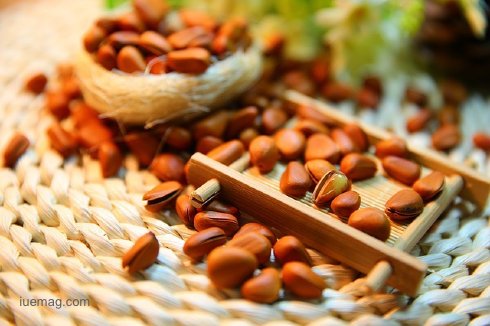

Eat Right to Perform Well: How Diet Affects Your Athletic Performance
If you’ve been training in a particular area for some time, but noticing no increase in your results and perhaps even a decline in performance, then it’s time to evaluate your nutritional intake. Correct nutrition is the foundation for muscle gain, energy output, recovery, weight loss, and so much more. If you were to break down the base nutrition of an athlete it would include:
Correct Hydration
 As big workouts involve a lot of water loss through sweat, it’s important to replace those lost fluids to avoid dehydration. Feeling thirsty is generally a sign that you are already dehydrated. A dry mouth can be one of the first signs but can also be accompanied with brain fog, headaches, or general fatigue. Not quite what you want when you’re looking to perform your best.
As big workouts involve a lot of water loss through sweat, it’s important to replace those lost fluids to avoid dehydration. Feeling thirsty is generally a sign that you are already dehydrated. A dry mouth can be one of the first signs but can also be accompanied with brain fog, headaches, or general fatigue. Not quite what you want when you’re looking to perform your best.
Be wise with your fluid options as soft drinks will do more harm than good, due to their acidic nature they will actually rob you of fluids. The best form of fluid is, of course, water. Options like coconut water will hydrate as well as give you all the key electrolytes your body needs.
 These are the foods that act as your main source of energy throughout the day, especially if you are highly active. Think brown rice, potatoes, whole grain bread, and oats.
These are the foods that act as your main source of energy throughout the day, especially if you are highly active. Think brown rice, potatoes, whole grain bread, and oats.
Carbohydrates are vital pre-workout and post-workout, as your muscles rely on the intake of carbohydrates to be replenished after all your hard work. They offer a quick hit of energy, unlike fats or protein, which need to break down in your body first.
In one particular study, it was shown that with a high carbohydrate diet, energy output doubled than that of a normal diet. In contrast, a diet high in fat and protein reduced output to almost half of a normal mixed diet!
Of course, you don’t need to take a fully prepared meal with you to the gym or football field, as you can find some of the best workout carbs in fruit smoothies, yogurt, and rice crackers. It’s the one time you can get away with eating more refined carbs, such as white bread and even pure glucose powder. Your body will be quick to use these as energy rather than storing them as fat.
Outside of the gym, try aim for meals that include whole food sources of carbohydrates. These types of carbs offer a steady release of energy over the course of the day.
 Not consuming enough protein is also why you may not see the results you’re after, especially if your goal is building high-definition muscle or recovering from a high-intensity exercise. Protein is all about repairing damaged tissue and muscle fibers that have been torn throughout your workout.
Not consuming enough protein is also why you may not see the results you’re after, especially if your goal is building high-definition muscle or recovering from a high-intensity exercise. Protein is all about repairing damaged tissue and muscle fibers that have been torn throughout your workout.
Amino acids are actually the building blocks of protein. Nine essential amino acids need to come from food sources, as the body cannot produce them. Aside from making up protein, amino acids are essential for many processes in your body, such as transporting nutrients, carrying oxygen throughout the body, growing new blood vessels, and protecting the body from disease.
You should always aim to get your protein intake from whole foods, however, when you’re short on time or just can’t achieve your daily intake, protein shakes are a great way to fill in the gaps. Adequate protein intake combined with proper rest will give your body a chance to repair and bounce back.
Aside from looking for whole food options to maintain an adequate intake of protein and carbohydrates, try to also be mindful of their nutritional quality. Superfoods have become a huge point of attention for those looking at taking their athletic performance to the next level. These are foods that are incredibly dense in vitamins, minerals, and antioxidants, but also go the extra mile in terms of functionality in your body. Visit our website to learn more about the best superfoods to add to your diet to meet your nutritional goals.There are still so many aspects of the human body that remain a great mystery, but with advancements in technology and science, we are learning more each day about the unique structure of the human body and its performance output. Learning about nutrition is a continual growth point after you have grasped the basics. You can never know too much!
Correct Hydration
 As big workouts involve a lot of water loss through sweat, it’s important to replace those lost fluids to avoid dehydration. Feeling thirsty is generally a sign that you are already dehydrated. A dry mouth can be one of the first signs but can also be accompanied with brain fog, headaches, or general fatigue. Not quite what you want when you’re looking to perform your best.
As big workouts involve a lot of water loss through sweat, it’s important to replace those lost fluids to avoid dehydration. Feeling thirsty is generally a sign that you are already dehydrated. A dry mouth can be one of the first signs but can also be accompanied with brain fog, headaches, or general fatigue. Not quite what you want when you’re looking to perform your best.Be wise with your fluid options as soft drinks will do more harm than good, due to their acidic nature they will actually rob you of fluids. The best form of fluid is, of course, water. Options like coconut water will hydrate as well as give you all the key electrolytes your body needs.
Carbohydrates
 These are the foods that act as your main source of energy throughout the day, especially if you are highly active. Think brown rice, potatoes, whole grain bread, and oats.
These are the foods that act as your main source of energy throughout the day, especially if you are highly active. Think brown rice, potatoes, whole grain bread, and oats.Carbohydrates are vital pre-workout and post-workout, as your muscles rely on the intake of carbohydrates to be replenished after all your hard work. They offer a quick hit of energy, unlike fats or protein, which need to break down in your body first.
In one particular study, it was shown that with a high carbohydrate diet, energy output doubled than that of a normal diet. In contrast, a diet high in fat and protein reduced output to almost half of a normal mixed diet!
Of course, you don’t need to take a fully prepared meal with you to the gym or football field, as you can find some of the best workout carbs in fruit smoothies, yogurt, and rice crackers. It’s the one time you can get away with eating more refined carbs, such as white bread and even pure glucose powder. Your body will be quick to use these as energy rather than storing them as fat.
Outside of the gym, try aim for meals that include whole food sources of carbohydrates. These types of carbs offer a steady release of energy over the course of the day.
Protein
 Not consuming enough protein is also why you may not see the results you’re after, especially if your goal is building high-definition muscle or recovering from a high-intensity exercise. Protein is all about repairing damaged tissue and muscle fibers that have been torn throughout your workout.
Not consuming enough protein is also why you may not see the results you’re after, especially if your goal is building high-definition muscle or recovering from a high-intensity exercise. Protein is all about repairing damaged tissue and muscle fibers that have been torn throughout your workout.Amino acids are actually the building blocks of protein. Nine essential amino acids need to come from food sources, as the body cannot produce them. Aside from making up protein, amino acids are essential for many processes in your body, such as transporting nutrients, carrying oxygen throughout the body, growing new blood vessels, and protecting the body from disease.
You should always aim to get your protein intake from whole foods, however, when you’re short on time or just can’t achieve your daily intake, protein shakes are a great way to fill in the gaps. Adequate protein intake combined with proper rest will give your body a chance to repair and bounce back.
Nutrient-Dense Food Options
Aside from looking for whole food options to maintain an adequate intake of protein and carbohydrates, try to also be mindful of their nutritional quality. Superfoods have become a huge point of attention for those looking at taking their athletic performance to the next level. These are foods that are incredibly dense in vitamins, minerals, and antioxidants, but also go the extra mile in terms of functionality in your body. Visit our website to learn more about the best superfoods to add to your diet to meet your nutritional goals.There are still so many aspects of the human body that remain a great mystery, but with advancements in technology and science, we are learning more each day about the unique structure of the human body and its performance output. Learning about nutrition is a continual growth point after you have grasped the basics. You can never know too much!
Copyrights © 2026 Inspiration Unlimited - iU - Online Global Positivity Media
Any facts, figures or references stated here are made by the author & don't reflect the endorsement of iU at all times unless otherwise drafted by official staff at iU. A part [small/large] could be AI generated content at times and it's inevitable today. If you have a feedback particularly with regards to that, feel free to let us know. This article was first published here on 15th July 2017.
Want to Publish About Your Business / Achievements
Let's Discuss Right Away!

All chats are end-to-end encrypted by WhatsApp and won't be shared anywhere [won't be stored either].

